How to Use ChatGPT Voice to Text: A Simple Guide

Sorry, there were no results found for “”
Sorry, there were no results found for “”
Sorry, there were no results found for “”

Sometimes you get a burst of ideas. The last thing you want to do is pause to type or lose your train of thought as you look for a pen and paper to write those ideas.
ChatGPT voice-to-text is perfect for spitballing these ideas.
Or when you’re in a meeting, you can ask ChatGPT’s voice-to-text for instant feedback on half-formed ideas as you speak them aloud.
Talk through the rough concepts, and ChatGPT will capture, organize, and even expand on them in real time.
Makes your life easy, right?
Let’s see how to use ChatGPT voice-to-text to capture ideas.
ChatGPT’s voice-to-text feature (called Voice Mode) lets you speak instead of typing, turning your spoken words into written text in real time. Using automatic speech recognition (ASR), it captures what you say and converts it into prompts or notes that ChatGPT can understand and respond to.
Typing requires pausing to structure your thoughts. But voice input (or voice commands) keeps up with the natural pace of your thinking. You can speak in complete sentences, change your mind mid-phrase, or ramble through early ideas without worrying about punctuation or spelling.
In short, ChatGPT voice-to-text feels less like talking to a chatbot and more like conversing with a bite-sized expert.
As you’ve seen above, voice input in AI tools is used in fast-paced situations like meetings and brainstorming.
If you want to know more about how to use AI for meeting notes, watch this video.
Here’s how voice input stacks up against traditional typing when using ChatGPT:
| Aspect | Voice Input | Typing |
| Speed | Captures thoughts as you speak, faster than typing | Slower; limited by how fast you can type |
| Flow of ideas | Keeps you in the moment; no context-switching | Can disrupt flow when switching between thinking and typing |
| Effort | Hands-free and low effort | Requires constant manual input |
| Tone and expression | Natural, conversational tone comes through | More formal or edited tone by default |
| Spontaneous capture | Great for fleeting ideas and live discussions | Harder to capture fast-moving thoughts |
| Use Cases | Meetings, brainstorming, quick notes | Detailed edits, structured long-form writing, technical prompts, coding, formatting-heavy content, quiet environments |
👀 Did You Know? ASR technology processes speech far faster than humans can type. Modern speech recognition systems process over 200 words per minute, while the average human typing speed is around 40–60 WPM.
Hate to get stuck troubleshooting? Before you start using voice-to-text in ChatGPT, check if your tech meets the basics:
👀 Did You Know? ChatGPT’s Voice Mode uses Whisper to handle speech recognition, while a separate text-to-speech (TTS) model turns GPT’s replies back into audio.
ChatGPT’s voice input works in the mobile app (iOS and Android) and on the desktop browser, but it’s not switched on by default. You’ll need to make sure it’s turned on:
1. Open ChatGPT settings
On the mobile: tap your profile photo and go to settings
On the web: click your name or profile icon and go to settings
2. Go to voice settings
Select Voice or Speech under “Features” or “Beta features” (this may appear as Voice Mode).
3. Choose a voice
Pick one of the available voices (e.g., Ember, Breeze, Cove, Juniper, Sky).
4. Confirm microphone access
Grant ChatGPT permission to use your device’s mic.
Once enabled, you’ll see a headphone icon (on mobile) or a microphone icon (on web) to start a voice conversation.
👀 Did You Know? ChatGPT has seen a massive shift toward personal use. A study of ~1.5 million prompts over a ~13-month period found that over 70% of queries are for non-work-related, personal use, up from ~53%.
📚 Also Read: Can ChatGPT Transcribe Audio?
1. Open the ChatGPT app and tap the headphone icon at the bottom-right corner of the screen.
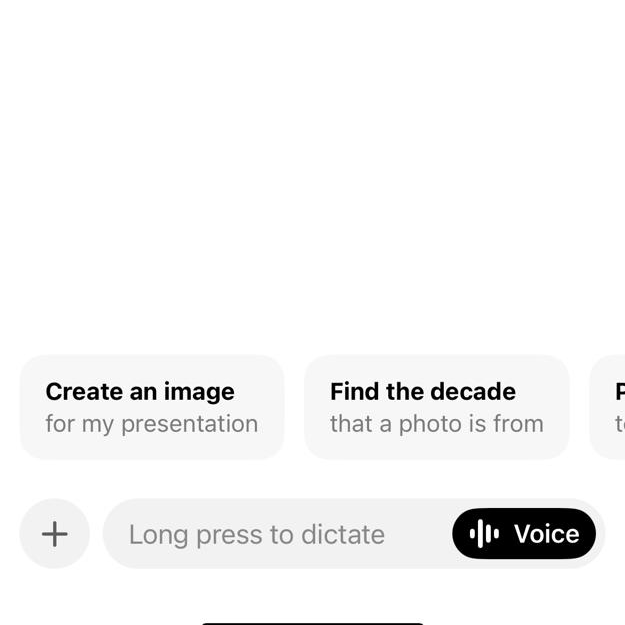
2. Choose a voice from the nine options available.
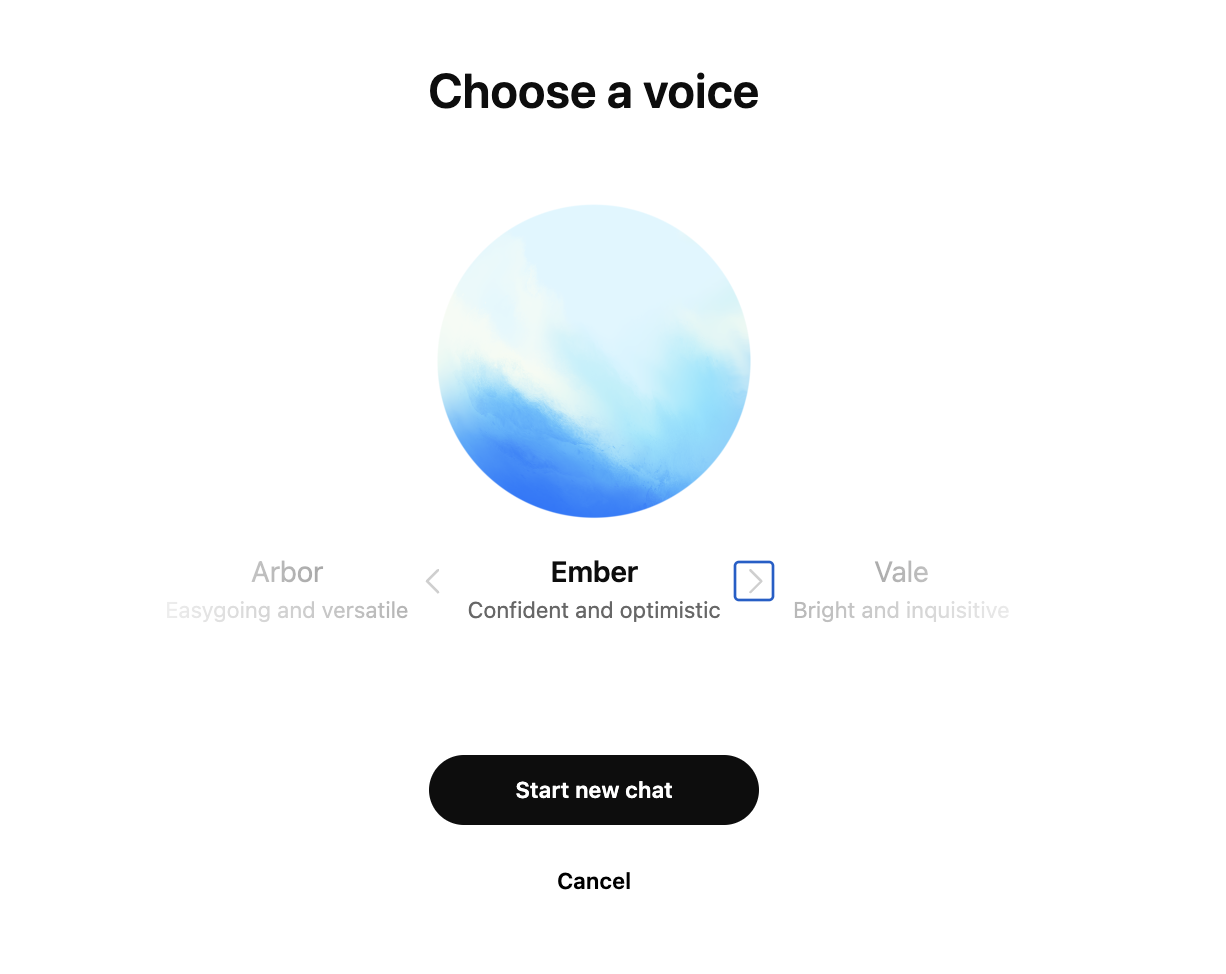
3. Start speaking when the app prompts you. ChatGPT will transcribe your voice in real time and respond out loud if you want.

4. You can even ask the bot to pick up from where you need more input.
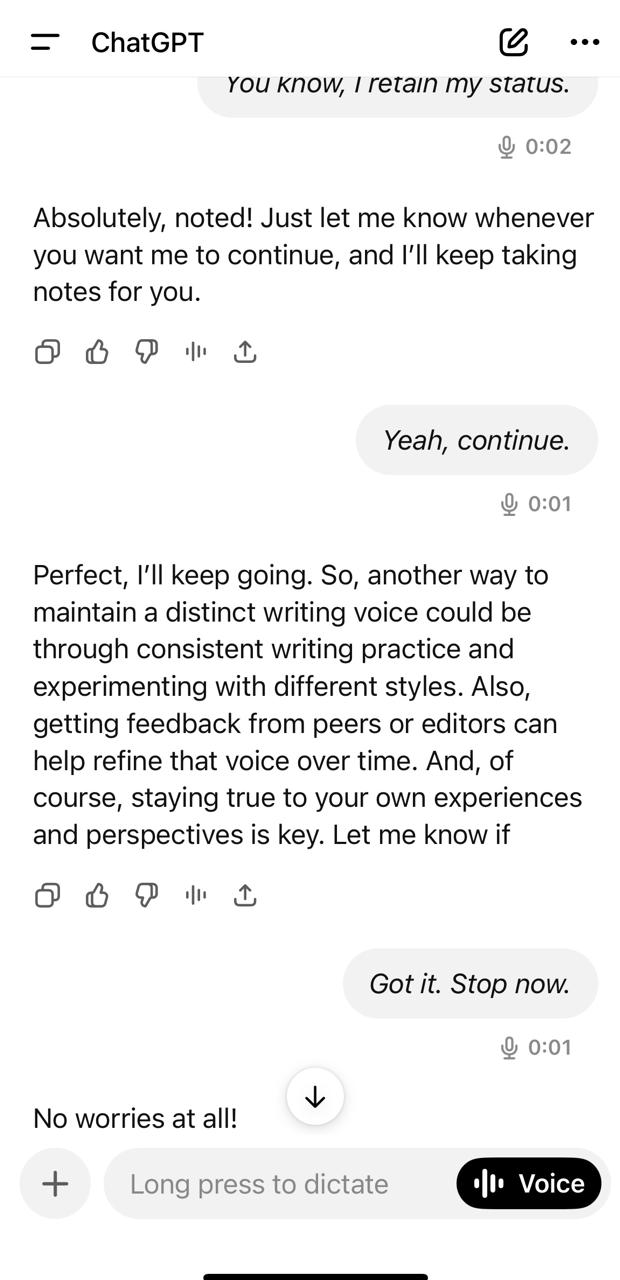
1. Open ChatGPT in your browser and click the microphone icon inside the message bar.
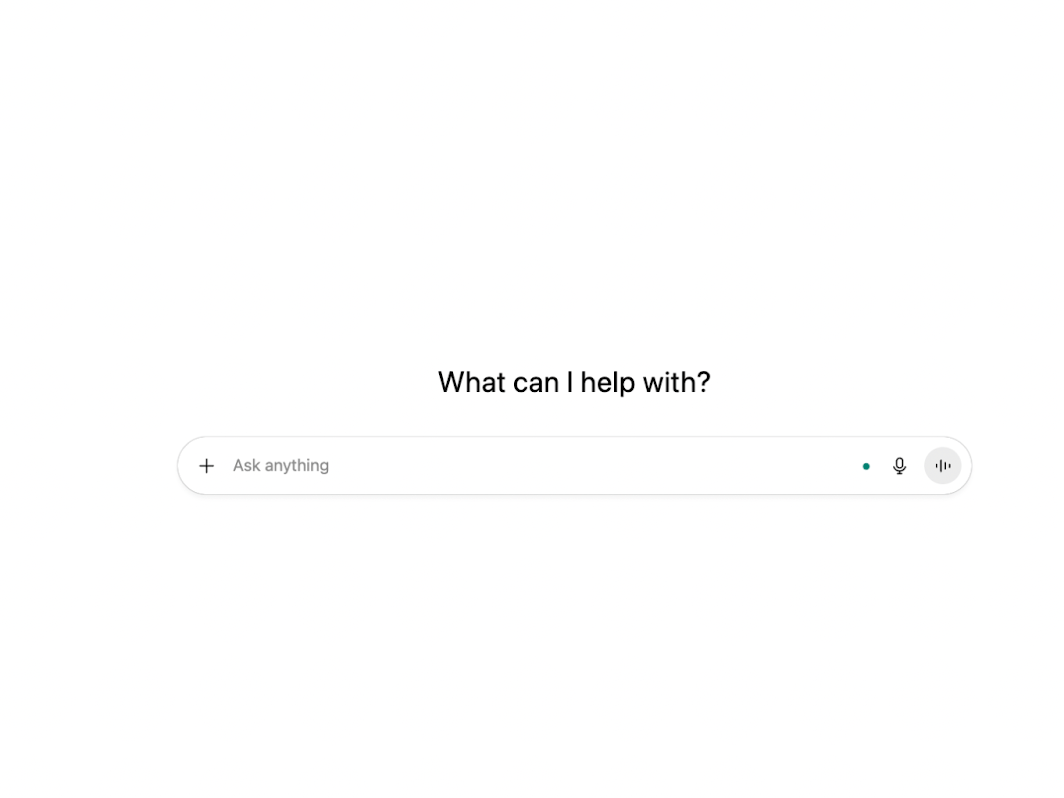
2. Speak your prompt, and it will appear as text. ChatGPT will reply as usual.

3. After the chat has ended, you get a transcribed version of the chat.
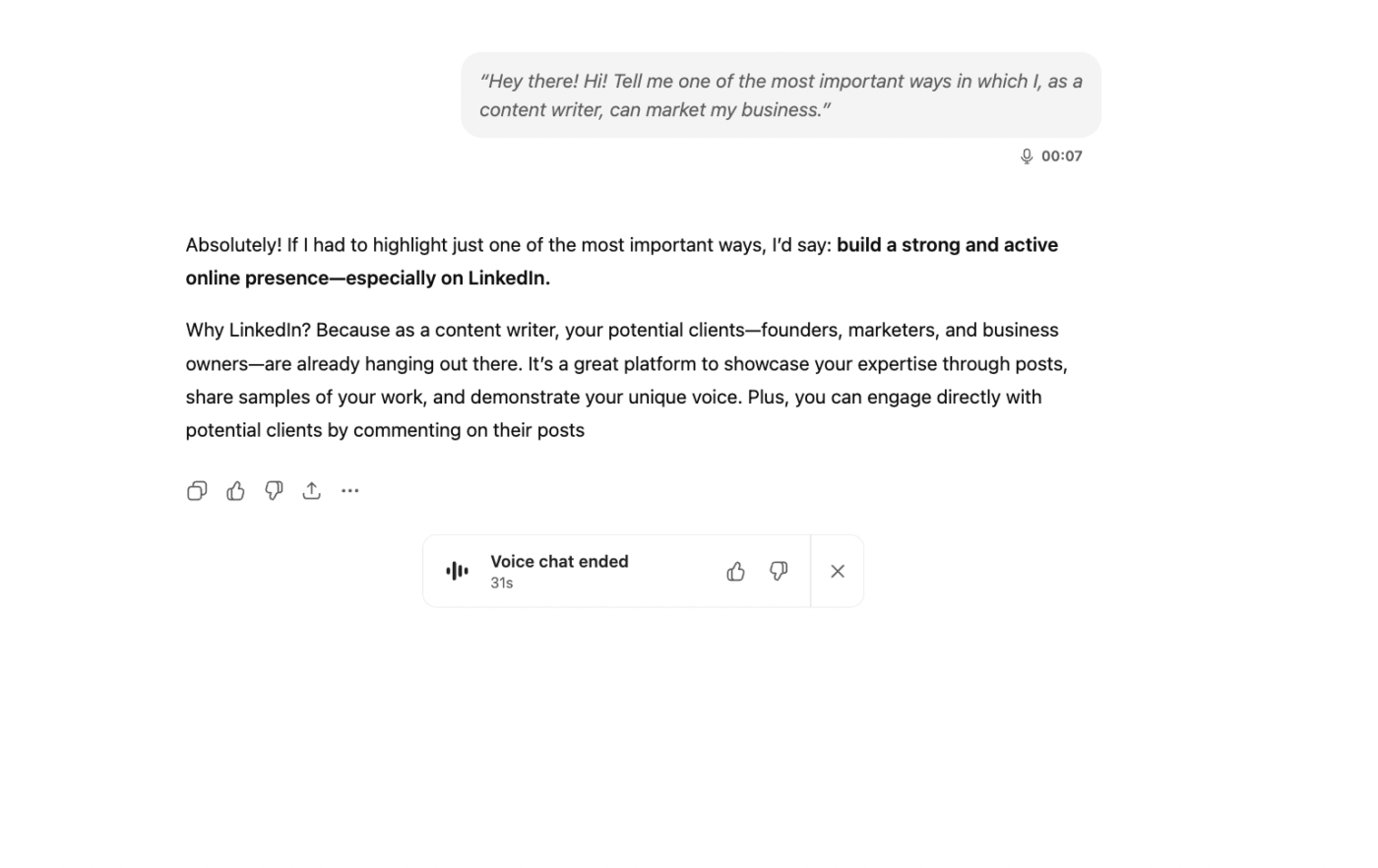
📚 Also Read: How to Add a Voice Over to a Video?
While ChatGPT does a great job with the output in most cases, voice recognition may sometimes fail you.
So, how do you improve its voice recognition accuracy? Let’s see how:
👀 Did You Know? ChatGPT outperforms crowd workers in some text-annotation tasks. In a study, ChatGPT was better than MTurk crowd-workers on tasks like stance detection, topic detection, etc., both in accuracy and agreement; cost per annotation was much lower (~US$0.003).
⚡ Template Archive: Free Meeting Notes Templates for Different Meeting Types
For instances where typing slows you down or interrupts your thinking, ChatGPT’s voice input is a great choice.
Here are some ways to use it in your day-to-day life, beyond the most obvious one: idea capture.
What if you had a coach who could simulate interview questions? Someone to practice with, who’d give you real-time feedback?
Here’s how you can do that, with the help of AI.
For example, start by adding the role and hiring manager’s information (JD, company information, manager’s challenges, and interview questions) and upload your resume to ChatGPT. Then prompt it to generate interview questions.
Now you switch over to the voice interface. Why start in the text-based interface and not voice mode directly? Because text lets you:
Doing that by voice is error-prone and harder to edit.
Then switch to voice for realistic practice. Ask ChatGPT to “act as the interviewer.”
💡 Pro Tip: After each question, ask it to give you three bullets of feedback (clarity, structure, and impact) and a follow-up question.
You can speak in one language—say English—and have ChatGPT respond in another, complete with pronunciation tips.
Just say, “Can you help me practice [language]?” and it will guide you with conversation starters, basic vocabulary, or numbers.
Because it remembers where you left off, it feels like having an ongoing language tutor. No Duolingo needed.

📚 Also Read: How to Transcribe Voice Memos
With Advanced Voice, you can use ChatGPT’s multimodal abilities to talk about what you see. You can try this directly from the ChatGPT website or mobile app.
Open the camera during voice mode, point it at an object, and ask your question.
Whether it’s identifying a painting or a plant species, ChatGPT can recognize what’s in view and tell you what it is in seconds.
💡 Pro Tip: After ChatGPT identifies what’s in view, don’t stop there; tap into its memory-like abilities.
Say, “Summarize this conversation so I can save it as notes.” This way, you’re not only recognizing objects, you’re instantly converting those insights into usable, organized outputs, similar to an AI voice recorder that creates ready-to-use transcripts.
Voice mode makes ChatGPT more accessible for people with low vision or dyslexia.
You can speak your questions and hear the answers read aloud at your preferred pace. It only takes one tap to start or stop, so you can navigate and learn without the friction of a keyboard.
When ideas come faster than you can type, voice mode keeps up. ChatGPT becomes your sounding board. You can throw ideas, and the voice mode converses with you, helping you build on your thoughts.
Because it responds instantly, your momentum doesn’t stall. You stay in creative flow until the idea feels fully formed.
Voice input makes it effortless to log small to-dos the moment they come up. Saying things like “Send the report by 5” or “Follow up with Sam” helps you capture tasks before they slip your mind, which is useful when you’re multitasking.
⚒️ Productivity Hack: If all your projects live within ClickUp, you don’t need a separate app for creating documentation. Use ClickUp Brain as your contextual AI-writing assistant to draft all these documents.
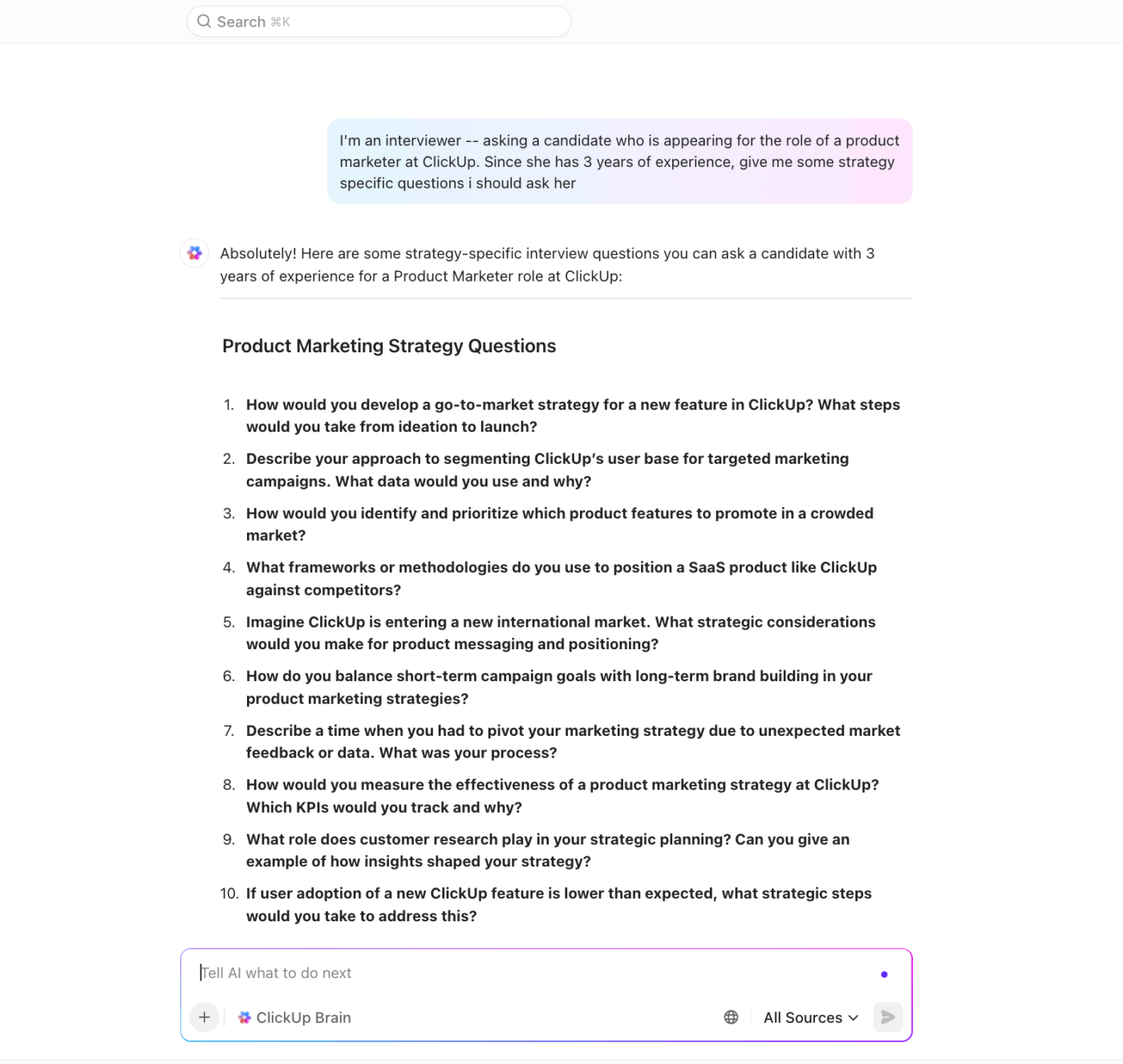
Going a step ahead, you can even ask Brain to convert them into tasks with due dates and assignees.
After a meeting, it’s easier to speak your notes than type them from scratch. You can quickly dictate decisions, action items, or recaps while the details are still fresh, staying present in the conversation instead of being buried in note-taking.
📚 Also Read: How to Use AI for Meeting Notes
📮 ClickUp Insight: According to our meeting effectiveness survey, 12% of respondents find meetings overcrowded, 17% say they run too long, and 10% believe they’re mostly unnecessary.
In another ClickUp survey, 70% of the respondents confessed that they would happily send a substitute or a proxy to the meetings if they could.
ClickUp’s integrated AI Notetaker can be your perfect meeting proxy! Let AI capture every key point, decision, and action item while you focus on higher-value work. With automatic meeting summaries and task creation assisted by ClickUp Brain, you’ll never miss critical information, even when you can’t attend a meeting.
💫 Real Results: Teams using ClickUp’s meeting management features report a whopping 50% reduction in unnecessary conversations and meetings!
Even though ChatGPT’s voice mode is powered by Whisper and is usually accurate, it can occasionally mishear words, lag, or fail to pick up audio. Most of these issues are quick to fix.
❗ If Voice Mode won’t start or keeps dropping, restart the app or browser tab and make sure your internet connection is stable. Also, confirm you’ve granted microphone permissions in your device settings.
❗ Sometimes, the transcription may switch languages unexpectedly. In that case, manually set the language you want to use before speaking again. If nothing helps, try logging out and back in, or reinstall the app to reset voice mode completely.
❗ Avoid overlapping voices. If multiple people are speaking around you, Whisper may mix up words. Have only one person talk at a time.
❗ Turn off other audio apps. Music or video playing in the background can compete for the mic and reduce recognition accuracy.
⭐ Bonus: While ChatGPT Voice Mode is great for turning speech into text, it stops at transcription. ClickUp’s AI Agents turn them into action.
Instead of just capturing words, they help you convert transcripts into tasks, plans, and follow-ups automatically.
Unlike traditional voice assistants that reset after each question, ChatGPT can build on your thoughts. Here’s how their strengths compare.
| Feature | ChatGPT | Siri | Alexa | Google Assistant |
| Conversational depth | Maintains long, multi-turn conversations with context | Mostly short, single-turn commands | Short commands, forgets context | Limited follow-up, often loses context |
| Creativity and reasoning | Generates ideas, analyzes info, brainstorms in real time | Minimal reasoning, scripted replies | Limited reasoning, task-focused | Some reasoning, mostly fact retrieval |
| Response style | Human-like, expressive voices | Robotic, formulaic tone | Robotic, predictable tone | Robotic, slightly more natural |
| Knowledge base | Draws from GPT’s broad training data | Relies on Apple’s knowledge base | Pulls from Amazon services and skills | Pulls from Google Search and services |
| Multimodal abilities | Can analyze images, documents, and text during voice chats | Voice-only | Voice-only | Voice-first with limited visual tie-ins |
| Follow-up understanding | Understands vague or evolving prompts and builds on them | Limited memory | No real memory | Limited memory |
| Use cases | Brainstorming, meetings, idea capture, language learning | Setting reminders, quick lookups | Smart home control, shopping lists | Quick searches, smart device control |
📚 Also Read: Best Transcription Software (Free and Paid)
While voice-to-text makes ChatGPT faster and more natural to use, here are some limitations to keep in mind:
If you need voice input to feed directly into tasks and documentation and improve cross-team collaboration, we have a better alternative to ChatGPT voice-to-text.
⚠️ Privacy Caution: Did you know a single “poisoned” document can trick ChatGPT into leaking sensitive data? Security researchers found that by embedding hidden instructions in a shared Google Drive file, ChatGPT could be manipulated into exposing API keys and sending them out automatically.
While OpenAI has patched the specific issue, the case shows why it’s risky to share confidential data in connected docs without safeguards.
When you use ChatGPT’s voice mode, you still need to do the heavy lifting once the words are on the page.
ClickUp takes a different approach. Being the everything app for work, it weaves the voice input into a productivity system.
What does it mean for you?
With ClickUp’s AI-powered voice features, you can dictate instructions, record meetings, transcribe them automatically, summarize key points, assign tasks directly from transcripts, and organize everything inside the same workspace.
ClickUp’s Talk to Text feature, powered by ClickUp Brain MAX, transforms the way you work by letting you communicate at the speed of thought.
Simply speak, and your words are instantly converted into polished, professional text—whether you’re drafting tasks, sending emails, or capturing meeting notes.
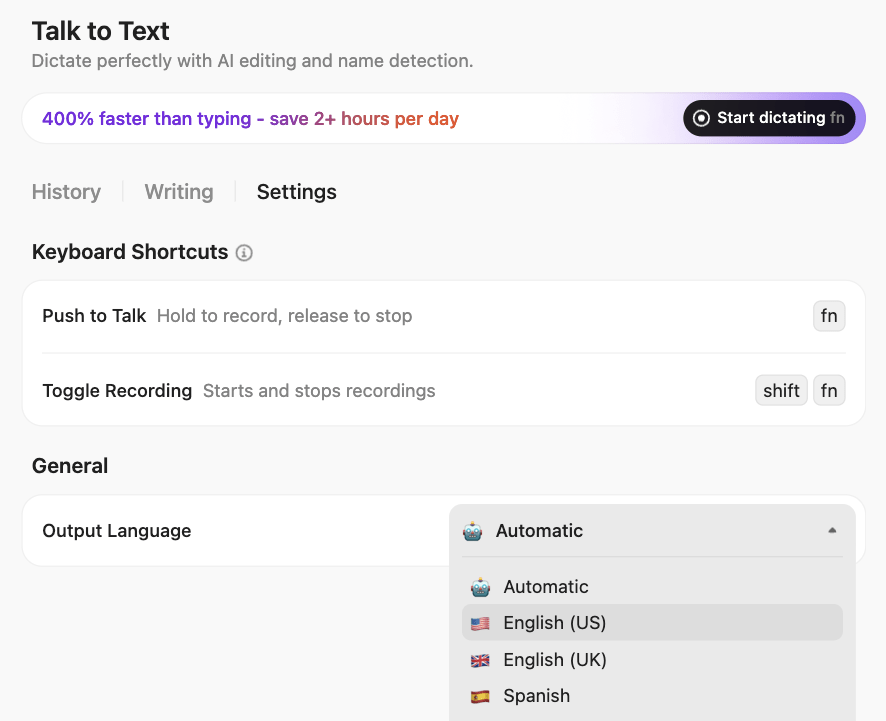
With support for multiple languages, context-aware tone adjustment, and seamless integration across all your favorite apps, Talk to Text eliminates typing bottlenecks and keeps you in your workflow.
It’s more than just dictation; it’s an intelligent writing assistant that learns your style and helps you turn ideas into action, making productivity effortless for every team.
Use Voice Clips in task comments to speed up feedback loops.

Just record and send audio messages directly in task comments, both on web and mobile. This is perfect for quick updates, sharing feedback, or when typing isn’t convenient.
If your workspace has ClickUp AI, it’ll automatically transcribe the audio and display the transcript below the comment. The AI can also summarize the Voice Clip, extract action items, or even create tasks or docs from the transcript for quick follow-through.
💡 Pro Tip: Once tasks are created from transcripts, use ClickUp’s Enterprise Search to pull them up alongside the original meeting notes, docs, or chats.
Simply type “Q3 launch tasks” or “client feedback from demo”, and Enterprise Search surfaces both the task and its transcript context. This keeps execution tightly connected to the discussions that shaped it.
ClickUp’s AI Notetaker captures what happens in meetings almost automatically. You don’t need to divide your attention between participating and note-taking.
Once you connect your Google or Outlook calendar and enable AI Notetaker in ClickUp’s Planner, the bot can join your meetings in Zoom, Microsoft Teams, or Google Meet.
💡 Pro Tip: After enabling ClickUp’s Zoom integration and cloud recording, you can launch Zoom calls directly from your tasks. When the meeting ends, ClickUp will automatically drop the recording and transcript links right into the task’s comments and activity panel.
After the meeting, AI Notetaker automatically generates a private doc in ClickUp with everything you need.
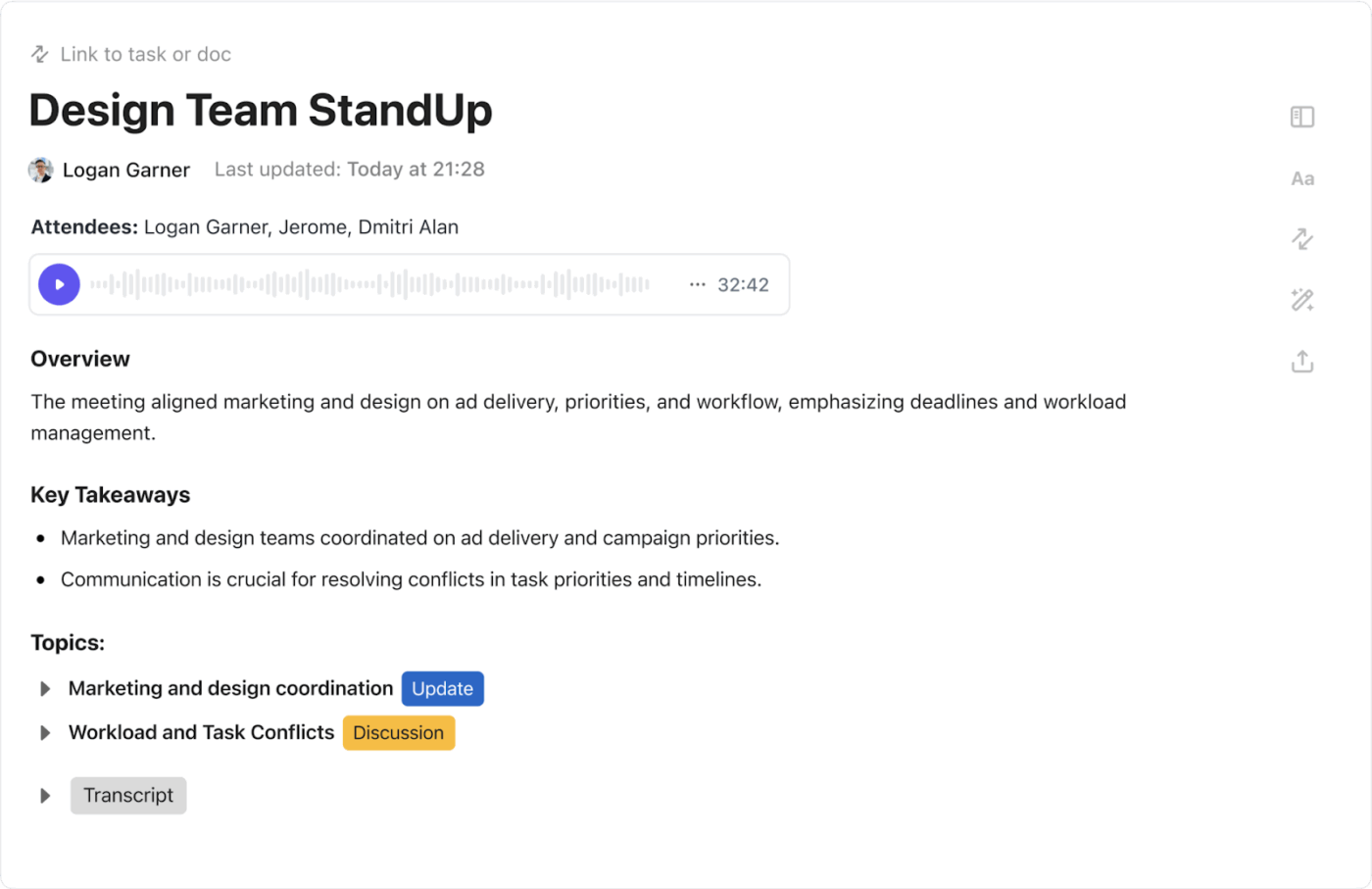
Here’s why it goes way beyond the speech-to-text software available today:
Docs also include version history and granular permissions, ensuring you can safely track changes and control who can access sensitive transcripts (like client interviews or internal strategy calls).
⚒️ Productivity Hack: Store all your meeting transcripts in a shared Docs folder and use slash commands (/link) to connect each Doc to its related tasks or projects.
Watch this video to explore the power of ClickUp’s AI Notetaker, which knows your work.
Don’t believe us? Hear it from one of the Reddit users:
That’s interesting, thanks for sharing! I’ve had the opposite experience as far as key takeaways and action items, I find them to be extremely detailed and clear. I also love that they tag/assign action items to individuals right in the doc.
⚒️ Productivity Hack: After your meeting transcript is generated, ask ClickUp Brain MAX questions like “Summarize this meeting in 5 bullet points” or “List all action items with assignees”.
As an AI transcript summarizer, it scans the transcript and instantly pulls structured answers, saving you from reading the entire thing.
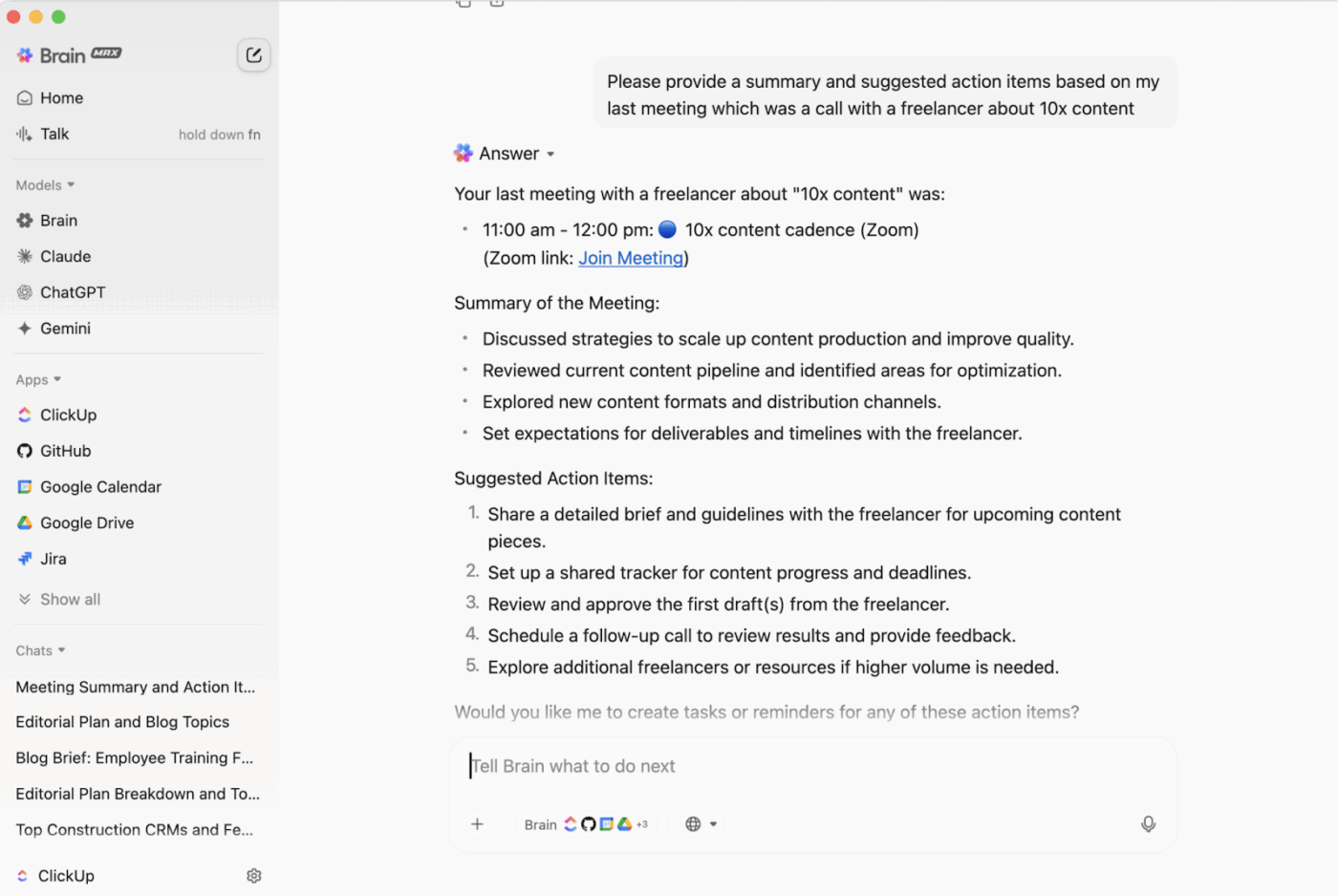
Because ClickUp is a Converged AI Workspace where all your work resides, ClickUp Brain, the integrated AI assistant, has complete context of all your work.
Ask natural-language questions like “What did Priscila say about the launch timeline?” or “List the next steps we agreed on for the product demo”, and it will pull exact answers straight from your workspace.

By pulling real-time insights from your work, Brain bridges the gap between conversation → clarity → execution, something ChatGPT voice-to-text alone can’t do.
This video expands on the power of ClickUp Brain for work.
ChatGPT’s voice-to-text capability shows us how natural conversations with AI can capture ideas in the moment.
However, ClickUp’s AI voice features take you from idea to execution and insights. Every meeting, brainstorm, or quick note flows directly into tasks and projects, improving productivity for the whole team.
If you’re ready to work at the speed of your voice, now’s the time to try it. Sign up on ClickUp for free to get started.
© 2026 ClickUp